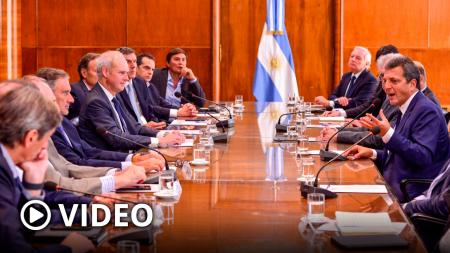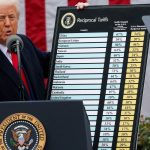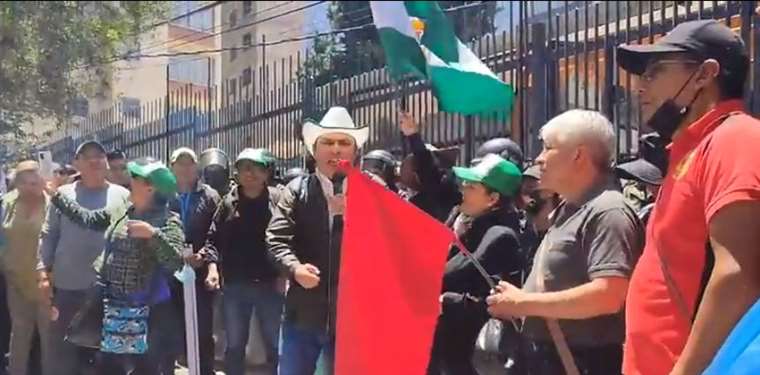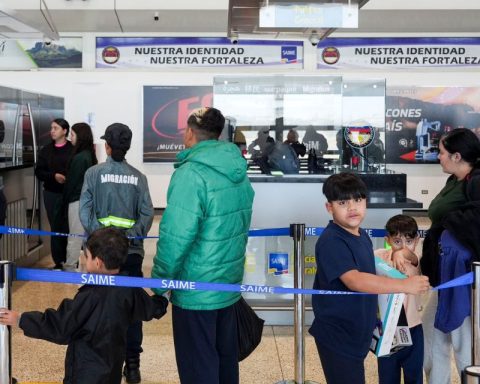He Ministry of Economy formalized this Monday afternoon the call for a debt swap in pesos maturing in the second quarter of 2023, for two baskets of bonds, one that includes exclusively inflation-adjusted securities (CER), and a second with a combination of 70% CER-adjusted and 30% dual bonds -adjusted for inflation or exchange rate-, with maturities in 2024 and 2025.
In total, the exchange will cover securities for some $7 trillion that are divided in similar parts between public organizations and private entities, mainly banks, although there are also other institutional investors such as investment funds and insurance companies, according to sources from the Palacio de Hacienda. ,
The opening of the tender will be Thursday March 9th and will close on Monday the 13th.
The titles eligible under the conversion offer will be: BONCER TX23, LEDES S31M3, S28A3, S31Y3 and S30J3, LECER X21A3, X19Y3 and X16J3, BONO DOLLAR LINKED TV23 and BONO DUAL TDJ23.
The first of the baskets will include the exchange of titles for CER bonds, with maturities in April 2024 (30%), October 2024 (40%) and February 2025 (30%); while the second basket comprises a dual bond maturing in February 2024 (30%) and two CER bonds, maturing in October 2024 (40%) and February 2025 (30%).
The objective of the Government is that the exchange allows to reduce the risks represented by the “towers” of maturities in the months of April, May and June -for more than $2 trillion in each month-, and to clear up the financial uncertainty that was generated prior to to each tender, the sources assured.
Yes ok The idea is that they adhere to the largest proportion of titles possiblegiven the expiration date of the new titles (2024 and 205) and the need for liquidity that both state agencies and companies have, from Economy discount that 100% adherence will not be achieved and, instead, they said that it could be considered a “successful” operation if a good part of the public sector and “between 45 and 50% of the banks” participated.
“Our objective is to go towards a reorganization of the maturity curve, so that the banks have returns in the short, medium and long term,” the sources said.
In this sense, it is discounted that the banks will be the ones that enter with the highest proportion of titles to the exchange between the private ones, since neither the investment funds nor the insurers usually seek coverage in titles with maturities greater than one year.
Even so, in the Palacio de Hacienda they are scheduling meetings with the funds and insurers, so that they can join the exchangewhile working on a reopening of the operation that was carried out in December of last year -to which almost $3 trillion entered- so that part of the titles that expire in March are incorporated, for close to $800,000 million.
Without a stabilized financial system and with the capacity to give credit, an economy does not work and that is why we have to continue working together to have a debt profile with an orderly curve, which allows us to bring predictability to those who trusted Argentina.
— Sergio Massa (@SergioMassa) March 6, 2023
This Monday at noon, the Minister of Economy, Sergio Massa, met with the main directors of the banks together with members of his cabinet and the president of the Central Bank (BCRA), Miguel Pesce.
Within this framework, the minister stressed that the measure seeks to break “with the idea that every week Argentina is at the door of a debt reprofiling, all those ghosts are cleared up. We deactivate the idea of the bomb, that every two or three months something is about to explode”.
As expressed by Massa, the initiative will give the debt market in pesos “a 2024, 2025 maturity curve, much more orderly, also associated with the fiscal order program.”
This agreement deactivates the idea of the bomb that some want to plant, clears up the uncertainty in the maturities of 2023 and serves as the basis for other agreements to improve the level of access to credit for citizens, which means greater investment in the economy.
— Sergio Massa (@SergioMassa) March 6, 2023
“We already had a reprofiling of the debt in pesos at some point, we saw the frustration, the pain and the failure that it meant for Argentina and we understand that having an orderly, predictable debt profile is fundamental for the financial system, for the fundamental State and for the saver and the citizen enormous peace of mind,” said the minister.
In the same way, President Alberto Fernández expressed himselfwho assured that the call for the voluntary exchange will bring “tranquility” to the financial markets, since it will make it possible to form “an accurate and sustainable debt program” for the future.
“The local debt profile improvement program gives confidence and protects Argentine savings. It strengthens the position of the State and gives us the peace of mind of being able to think of Argentina with an accurate and sustainable debt program”said the President in a message on his Twitter account.
“This is how the myths that announced that there was a debt bomb that was going to explode ended,” said Fernández, who pointed against “those who ‘reprofiled'” the debt, referring to the compulsory swap of debt maturities in pesos that the Mauricio Macri’s administration on the end of his term in 2019, to avoid having to pay that debt in cash.
“The usual doomsayers. The same ones who irresponsibly generated this debt, are the ones who now try to sow fear in the markets. We know what we must do“said the head of state.
Thus end the myths that announced that there was a debt bomb that was going to explode. Those who “reprofiled”. The usual doomsayers. The same people who irresponsibly generated this debt are the ones who are now trying to sow fear in the markets.
We know what we must do.– Alberto Fernandez (@alferdez) March 6, 2023
On Sunday, former officials of the government of Mauricio Macri, Guido Sandleris (former president of the Central Bank) and Hernán Lacunza (former Minister of Finance), publicly questioned the exchange operation, considering it “ruinous” for the State, since it includes a put option of securities at market price on account of the BCRA.
On this point, from Economy assured that “it is not an exchange insurance” and that, in reality, It is just a way to obtain liquidity if necessary, a request made by the banks in the face of the political risks that the opposition to the Government installed on a possible ignorance of the debt, in case they are elected in the presidential elections this year.
At the midday meeting held at the Palacio de Hacienda, on the side of the banks were present the president of the Association of Banks of Argentina (ABA), Claudio Cesario; the head of the Argentine Capital Banks Association (Adeba), Javier Bolzico; the general manager of Banco Macro, Gustavo Manriquez; the CEO of Banco Santander, Alejandro Butti; the general manager of ICBC, Alejandro Ledesma; and the owner of Credicoop, Carlos Heller.
Also participating were the HSBC treasurer, Federico Alcalde Bessia; the general manager of Banco Galicia, Fabian Kon; the president of Banco Patagonia, Oswaldo Perré dos Santos; the president of BBVA, Martín Zarich; the Finance Manager of Banco de Santa Fe, Leticia Canclini; and the director of Banco San Juan, Claudio Canepa.


















